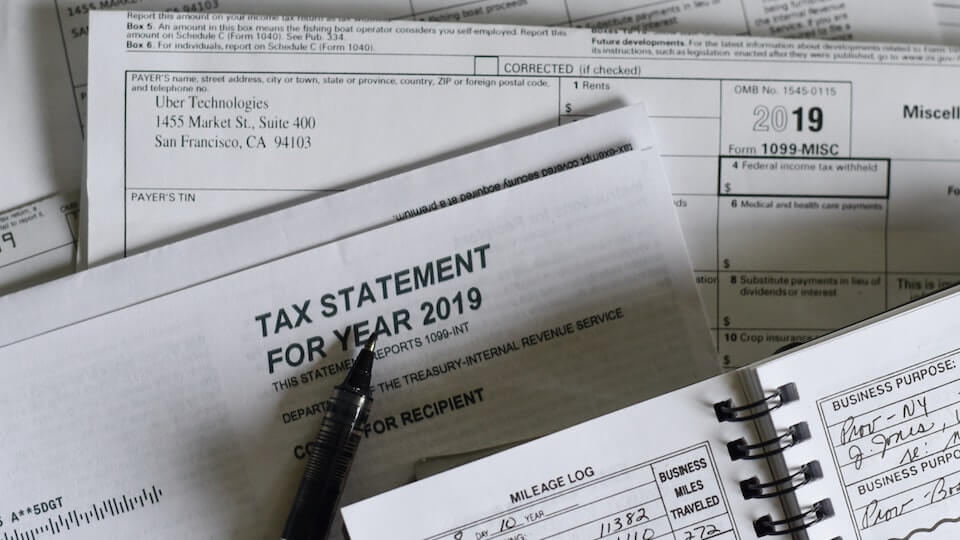
Normalizing Personal Income: A Business Owner’s Guide
November 17, 2020
What Is the True Value of Your Business?
November 24, 2020Do Taxes Matter? Understanding How Taxes Impact Your Wealth Gap

Over the last few weeks, I have been going over some of the things that keep business owners up at night. More specifically, I’ve been discussing the wealth or retirement gap that we all face. In today’s entry, I want to continue with this subject by answering a very important question… do taxes matter? The short answer is yes, of course. But as I dig deeper, I’m going to show you how taxes impact your wealth gap and your ability to accumulate the wealth you will need for your retirement. Join me as I unpack all of the pertinent details of this subject.
Follow Along With The Financially Simple Bizcast!
TIME INDEX:
- 01:15 – Do Taxes Matter?
- 04:22 – The Internal Revenue Code is a Tool for Wealth Creation
- 05:42 – What Do These Numbers Mean For Us
- 10:31 – A Brief History of Taxes
- 12:59 – So What does All This Mean
- 14:27 – And What Does it Mean for Us
- 15:52 – Summary
Taxes: One of Life’s Certainties
Before I go any further, I want to give a quick recap just so that any references or analogies that I make are understood. If you’ve missed any of the entries in this series, I strongly urge you to go back and review. In those previous pieces, I’ve used the imagery of the Tennessee River which flows through my back yard. In describing the wealth gap, I said that it was like standing on one of the river’s banks and looking across the water to the opposite bank. The bank you’re standing on represents your current financial status and the opposite bank is the amount of wealth you need for retirement. The river itself is the difference between how much wealth you currently have and what must be accumulated in order to reach your retirement goals.
RELATED READING: What Is The Wealth Gap? A Guide For Entrepreneurs.
When we look at bridging the wealth gap, it’s important to factor in anything that can get in the way of reaching our goals. That’s why today’s topic is so important. You can’t have an accurate calculation without understanding how taxes impact your wealth gap. You see, taxation plays a significant role in our ability to accumulate wealth. If a business owner went through their entire career without utilizing any of the tax breaks that are available to them, they would have built substantially less wealth than someone who understood the Internal Revenue Code (IRC) and took advantage of its many tax-saving benefits.
A good friend of mine once said, “The Internal Revenue Code is the greatest wealth creation tool in the United States.” He’s not wrong, folks! The Internal Revenue Code is a tool for wealth creation. As such, it can be the difference in whether taxes impact your wealth gap in a negative way. You see, the majority of the IRC is pages and pages of information on how you can legally minimize taxes. Now, I want to be absolutely clear, I am not offering tax advice. Nor am I advocating for any illegal or unethical means of avoiding the payment of taxes. You should always consult a professional before employing any of the strategies found within the IRC to ensure that you are compliant with the law.
By The Numbers
The top marginal income tax rate of 37% affects taxpayers with a taxable income of $518,400 or more for single filers. Likewise, it impacts married couples filing jointly, with a taxable income of $622,050 and above. But what does that mean for us? Will taxes increase? Will tax brackets expand, or decrease? The only way to truly answer these questions is to look back at historical tax brackets. In 1984, the lowest bracket was $3,400. The highest was $162,000. However, this began to spread in the 1990s. In fact, the highest bracket in 1994 rose to $250,000 while the lowest bracket remained around $38,000. So, there began to be a “spread” between the tax rates of high-income earners and those with less income. As you can see, that spread has become an albatross in the modern era.
 Historical Tax Data
Historical Tax Data
In order to better put into context how taxes impact your wealth gap, let’s look at some of these numbers through a tax rate calculator. Using this calculator, if you were making $50,000 (in today’s dollars) in 1913 you would have paid around 1% in taxes. However, that same $50,000 earnings would have landed you in a 20% tax bracket. So, what happened? Well, that would have been about the time that the government needed to fund the war effort for WWII. Since that time, there hasn’t really been a whole lot of movement. If you earn $50K today, you’re going to be taxed at about 17 percent.
However, most of the business owners I work with earn much more taxable income than $50k. So, let’s go with a more realistic figure. We will enter $500K into the calculator. As you can see, the effective tax rate makes a considerable change between 1937 and 1942. In 1944, a person earning $500K (in today’s dollars) would be taxed at a rate of 51%. That number rose to as high as 61% in the early 1980s.
What History Tells Us
Famed historian and co-documentarian of the PBS series Prohibition, Lynn Novick, attributes the creation of the federal income tax to prohibition in the United States. Novick states, “I had no idea how important liquor was to the federal government. It started in the Civil War with the levy on beer and whiskey to help fund the war, and it never really went away. Some 30% to 40% of the government’s income came from the tax on alcohol. So Prohibitionists realized that the only way they’re going to have a ban was through income tax, which was a progressive cause and was really supposed to distribute wealth and to make things equitable during the robber baron era, where the wealth was being accumulated in a very small segment of the population.”
In 1913, the top tax bracket was 7% on any income over $500,000 ($11 million in today’s dollars). The lowest tax bracket was 1%. But so much has happened since then. We’ve experienced WWI, WWII, The Great Depression, and so much more. Each of these events has played a major role in how we are taxed. For instance, The New Deal carried an inflation-adjusted price tag of $856.1 billion, in 1933. Then from 1943 to 1982, the average tax bracket for the taxpayer earning $500,000 jumped from 14% to an average of 50% +/-.
Similarly, The Great Recession saw an economic stimulus that totaled $1.8 trillion. As a result, the Tax Relief, Unemployment Insurance Reauthorization, and Job Creation Act of 2010 maintained the 35% tax rate through 2012. Now, we have the largest stimulus package in our nation’s history, with the CARES Act, checking in at a staggering $3.6 trillion. As we have seen in the past, we can anticipate another increase in federal income taxes because of this.
Putting It All Together: How Taxes Impact Your Wealth Gap
Friends, there are two certainties in this life. Death and taxes. The objective of today’s entry was to get you thinking about how taxes will likely impact your wealth gap. I want each of you to be confident in your personal plans and direction. You know what you want out of retirement and how long you have to build the wealth that will fund it. Don’t let something like taxes throw off your calculation. Over the next several posts, I’m going to dig deep into the subject of taxes, providing you with valuable information so that you can face your future with confidence.
You need to have a rockstar CPA helping you with your annual tax filings. But you should also be meeting with them about proactive strategies that mitigate your tax burden. The less you pay in taxes, the more you can save for retirement. Both of these will help you to close your retirement gap sooner than later.
Folks, I know that life is hard. But life is good. Calculating your retirement wealth gap can be complicated. However, it doesn’t need to be. With a little knowledge and a great advisory team, understanding how taxes impact your wealth gap can at least be financially simple.
Find out how the team at Financially Simple can help you to calculate your retirement wealth gap and devise a plan that works toward your goals. Schedule a meeting with us, today!



